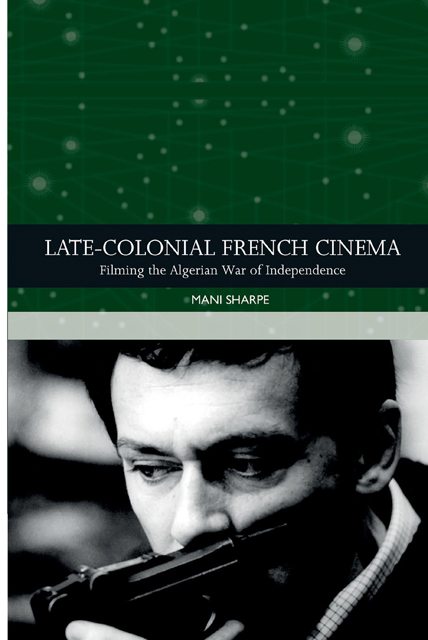7 - The War as Spoken by Algerians and the Left
Published online by Cambridge University Press: 13 April 2023
Summary
In Chapter 5, we encountered two fictional films that have often been grouped under the rubric of ‘parallel cinema’: Le Retour/The Return (Goldenberg, 1959), and Secteur postal 89098/Postal Sector 89098 (Durand, 1961), both of which, I argued, exemplified a process of ‘guilt displacement’. In the final chapter of this book, I would like to return to the politics and ethics of ‘parallel cinema’, scrutinising two leftist documentaries that have been associated with this trend: Octobre à Paris/October in Paris, by Jacques Panijel (1962), and J’ai 8 ans/I Am 8 Years Old (1961), by Yann Le Masson, Olga Baïdar-Poliakoff, and René Vautier (henceforth attributed to Le Masson). Focusing on questions of speech and silence, in both documentaries, I will suggest, we can find a comparable tension: between a discourse of anti-colonial pacifism, orientated towards chronicling the victimhood of indigenous Algerians, and a discourse of leftist militancy, orientated towards redeeming the reputation of the metropolitan Left.
The Left: Complicity, Mythologisation and Redemption
The Left’s relationship with decolonisation was an ambivalent one. From the 1920s to the early 1950s, the official Left, represented by the French Communist Party (the PCF), considered colonialism as a financially and politically beneficial ideology to be maintained, Algerian nationalism as a violent insurrection to be denounced, Algerian independence as a ‘difficult idea to accept’, and the war more generally as a transitory phrase that could be resolved, either through ‘peace’ or a ‘wait and see attitude’, all of which were criticised by thinkers such as Frantz Fanon and Jean-Paul Sartre as symptomatic of colonial paternalism or political quietism (House and MacMaster 2006: 195, 208). It was not until 1956 that the Left made its first foray into the politics of the war, when the French Communist Party pledged unanimous support to a radical law, predicated on granting special powers to the army in Algeria, and orchestrated by the Socialist Prime Minister, Guy Mollet.It was a decision that quickly proved disastrous. Over the following months, the army proceeded not so much to capitalise on its newfound special powers as it did abuse them, carving the country up into regulated zones, some open to the public, others completely forbidden or circumscribed by curfews, and privileging excessive military tactics that increasingly bordered upon illegality, including indiscriminate racial discrimination, extrajudicial detention and institutionalised torture, as deployed notably during the Battle of Algiers in 1956–7 (see Introduction).
- Type
- Chapter
- Information
- Late-Colonial French CinemaFilming the Algerian War of Independence, pp. 190 - 216Publisher: Edinburgh University PressPrint publication year: 2023

